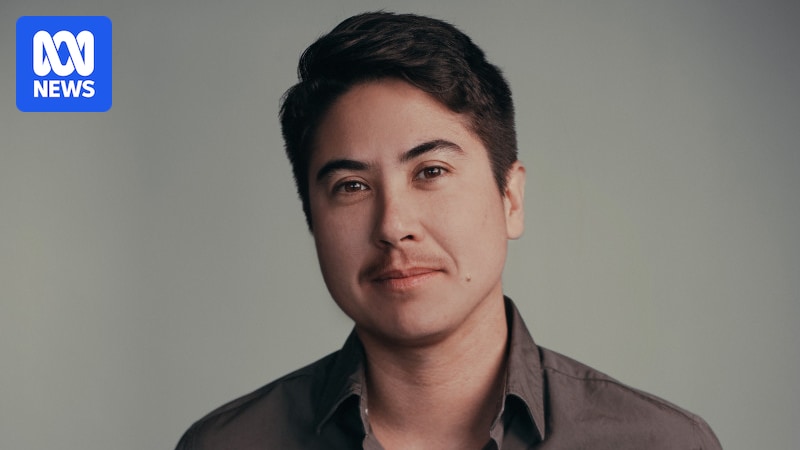The voice in Keio Yoshida’s books comes to life when I chat with them, long-distance from their home in Madrid.
Articulate, passionate and considered, Yoshida — an author and international human rights lawyer — is known particularly for their role in the historic Rosanna Flamer-Caldera v Sri Lanka case, the first to call for the decriminalisation in that country of same-sex intimacy between women.
On the phone, we commiserate about the heatwave sweeping Europe and Asia. I sense acutely how their practice as both a lawyer and a writer is reflected in the act of communing across (and bringing together) disparate times and places.
Pride and Prejudices, their new and first individually authored book, depicts different struggles for queer rights with a scope that is at once panoramic and intensely personal.
In a style typical of creative non-fiction, in which an author is present in the story they’re telling, Yoshida intersperses references to case law with their personal experience.
Michael Kirby has described Yoshida’s book as one that will “galvanise” readers. (Supplied)
The evolving narrative stretches from Oscar Wilde’s persecution to contemporary battles for child care, reproductive rights and trans existence. It includes the author’s memories of coming “fully out of the closet” at 23 to starting a family and becoming pregnant just before the pandemic, in the midst of adopting a masc/genderqueer identity that left them wondering: “Could I manage nine months in drag?”
Yoshida is impelled to fight for a more considered recognition of queer lives, and Pride and Prejudices imagines how the law can tell queer stories differently.
It critiques states, families and communities that disseminate damaging narratives about queer lives as wrong, invalid or dangerous.
A person’s identity, Yoshida argues, is never just a question of individual personhood. It includes a person’s community, children, battles for housing, bodily autonomy, freedom of movement and health care.
For Yoshida, describing and making sense of queer experience is a matter not only of safety and survival, but of flourishing, too.
For many, sharing queer stories is an act “of joy”, they say.
Kate Rowe’s powerful queer memoir
Yoshida’s latest book emerged after a conversation with Jennifer Robinson, the Australian lawyer with whom they wrote How Many More Women?
That book investigated how laws around issues like defamation and sexual violence can silence women.
Robinson asked what Yoshida was going to do next.
“Top surgery,” they recall answering.
“It felt like the tide seemed to be turning and trans rights were starting to be curtailed, so I was worried. [Robinson] was saying, you know, you should write about this, you should talk about your journey.”
The idea appealed to Yoshida, who thought sharing their story might help other trans folk.
“I felt, in so many points of my life, I’ve had to research the law and find things where, if I were straight, everything would have been obvious,” they say.
Power in stories
Growing up in Northern Ireland, Yoshida struggled with coming out, a process that began in their mid-teens.
“Ireland’s story is a very hopeful one of change, of the criminalisation of homosexuality until the 90s — then suddenly, in 2015, you’ve got self-identification for trans people and gay marriage coming in with a referendum.
“The message really is that we need to continue to fight for our legal rights. Because if we don’t, they’re for somebody else to take away.”
“I still read judgements and I can’t perceive the human in what they’re talking about,” Yoshida says.
As an example, they mention the US Supreme Court’s upholding of a Tennessee judgement banning gender-affirming care. Wading through pages of legal minutiae and technical argument, they recall reading only one of the justices “asking questions about the plaintiffs, about the individuals involved”.
Yoshida recounts their attempt to raise a child with their partner in Spain and learning that queer couples have to be married for both to be on the birth certificate and to be recognised as parents — a rule that does not apply to heterosexual couples.
They recall suggesting to their partner they marry, before following that thought up with the question: “Should we challenge this in court?”
Yoshida believes the biggest challenge currently facing the law in many jurisdictions surrounds questions of family, queer parenting and trans rights. They cite discrepancies in how parenthood is recognised in different countries’ jurisdictions, and who the law is willing to recognise as a “mum”, “dad” or “parent” when one or more parents are genderqueer or intersex.
They argue queer parents carry the burden of potentially losing custody of a child on the basis of their sexual or gender identity.
“I think the concept of family is being or has been co-opted by a conservative right-wing narrative, which continues to insist that the idea of family is a heterosexual couple with children, and that’s the only safe, normative form of family,” they say.
“We know that’s not reality.”
ABC Radio National’s Top 100 Books of the 21st Century
Alongside all of the history the book takes in, Pride and Prejudices paints a picture of Yoshida’s long personal history: the power and struggle of coming out, fearing for their future life, wondering what joy might be possible — or even thinkable — while asserting their trans identity and continuing to push back against laws that personally affect them.
Throughout the book, Yoshida cites songs and films, including those by directors Pedro Almodovar and Gregg Araki; they are references to “a part of our growing up, a part of our coming out, a part of being queer”.
For all the legal victories throughout the book, the battles are long and, in the case of international human rights law, the judgements are not binding upon the country concerned.
So how does Yoshida maintain hope? By coming back to thinking across time and space.
“Legal change is not the end of the road,” they say.
“We have to continue to tell stories.”
Pride and Prejudices is out now, published by Scribe.
